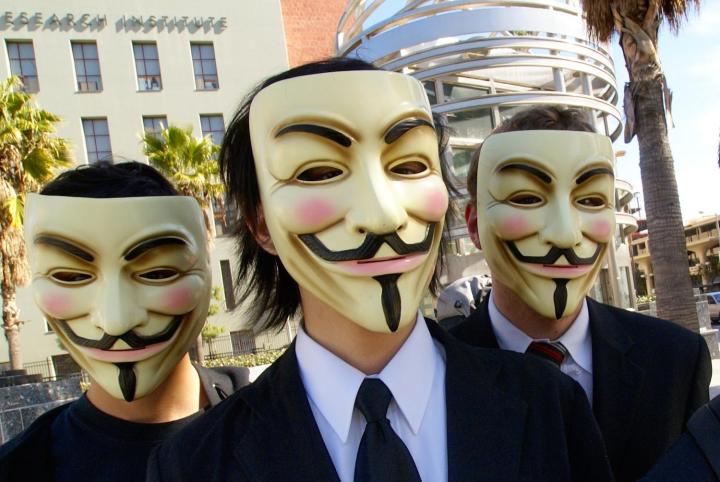
Monsegur spoke with CBS This Morning co-host Charlie Rose about his journey from hacktivist to informant. Monsegur, who led hack attacks that resulted in damages totaling $50 million, told Rose that hacking into systems was his way of escaping from a tough life of poverty in a New York City housing project. The Internet was his gateway to the world, and he admits to stealing credit card information so he could pay his own bills and not burden his grandmother, with whom he lived. He eventually joined a group of hackers and became involved with Anonymous, an elite group that focuses its attention on social justice and toying with the system to expose its flaws.
“Anonymous is an idea. An idea where we could all be anonymous,” Monsegur explained in the interview. “We could all work together as a crowd — united — we could rise and fight against oppression.”
Monsegur and his fellow hackers brought Anonymous to a whole new level, moving from low-level hacks to huge hacks with international implications. During the Arab Spring, he broke into the Tunisian prime minister’s website and posted a letter of support to the protestors. Monsegur was amazed with the power of the Internet and it’s ability to give a voice to those who normally wouldn’t have any influence over international events.
“It was amazing. I saw finally I was able to do something that contributed to society regardless if I was at home in the Lower East Side, in the projects, behind a computer,” Monsegur said.
Sabu didn’t stop there. He set up his own group called Lulzsec and began to target MasterCard, Visa, Paypal, the U.S. Senate, and FBI. In June 2011, he hit InfraGard, a website connected with the FBI. Less than a week later, the FBI found him after he made one small mistake. For the next three years, he worked as an FBI informant. Every time he went online, the FBI followed his movements. Sabu helped the FBI catch other hackers and prevent as many as 300 high-level attacks on governments and companies around the world — until he was found out and labeled as a snitch and a traitor by his fellow hackers.
Now, Monsegur warns that hackers will only continue to become more inventive, and the government will never catch them all. He told CBS that America’s online infrastructure is weak and stated point blank that hackers could easily break into airports, phones, and even the water system with a few keystrokes. He warned against the U.S government’s reliance on the National Security Agency (NSA), adding that even the security experts are not safe. “Who will guard the guards, Charlie?” he asked Rose during the interview.


